
Our Sustainable University
The steps we’re taking at Manchester Met
Content
We have set out ambitious targets, aiming to set an example of sustainability for universities around the world. To achieve those targets, we’re translating our strategic aims into everyday actions throughout every aspect of our operations.
-
Towards zero carbon - paving the way to 2038
We’re committed to becoming a net zero carbon university before 2038 for our direct and indirect carbon emissions (scopes 1, 2 and 3), which are outlined in our Leadership in Sustainability Strategy (2022-2026).
Our scope 1 and 2 carbon emissions
Our Carbon Management Plans (2020-26) for scope 1 and 2 emissions outlines the commitments and projects we must undertake, and comprises a sixyear programme of initiatives to 2026, setting the trajectory for two subsequent six-year plans to 2038.
We are classed as ‘leading the way’ in the Carbon Target rankings, which collates and scores UK university and college carbon reduction targets.
Here are some of the steps we are taking to reduce our energy use and carbon footprint:
On-site energy generation and storage is an integral part of our journey towards zero carbon and focuses on two key areas - roof-top solar photovoltaics and storage, and on-campus energy centres.
We plan to build two new energy centres - the Science and Engineering and the All Saints energy centres, and retrofit the Birley energy centre so that the current gas-fired systems are electrified.
As well as the five building rooftops that are currently installed with solar photovoltaics (PVs) arrays, we also plan to install solar PV arrays on two more buildings by 2026, with plans to undertake feasibility assessments on eleven more buildings.
All of our purchased electricity is 100% renewable (with the exception of a leased space within a building), and in we are generating more renewable and low-carbon energy on site.
Through additional energy efficiency and energy saving initiatives - Our University estate includes buildings of varying ages and conditions. We recognise that we need to make improvements to some to reach our zero carbon target. Through our Salix revolving Green Fund- we will invest over £200,000 annually into energy efficient systems and controls to reduce our energy consumption.
Our scope 3 carbon emissions
The majority (91% in 2021/22) of the carbon emissions that the university produces are scope 3. We are developing a comprehensive reduction management plan for scope 3 emissions, involving academic colleagues and student research, which will set out how we will achieve net zero carbon before 2038.
We report annually on our progress towards reducing our carbon emissions emissions in our Sustainability Report and in our Scope 3 Emissions Report.
-
Buildings and landscape - creating a sustainable campus
Building standards for sustainability
From design and construction to occupation and refurbishment, we have procedures in place to minimise the emissions and impacts of our buildings at every opportunity, and are developing a new guide for net zero buildings. We assess building projects for sustainability performance and impacts –aiming to achieve at least a BREEAM excellent rating for new construction, or SKA silver rating for refurbishment projects.
Renewable energy, generation and storage
Energy is an important factor in achieving building efficiency and sustainability, so we are continuing to drive energy efficiency across the estate, and installing energy generation and storage infrastructure:
- Across our estate, we have installed photovoltaic panels, ground source heating, electric-vehicle charging, lithium-ion battery energy storage and an energy centre at Birley, which includes a combined heat and power (CHP) plant.
- As part of our Carbon Management Plan (2020-2026), we chart our path towards zero carbon by 2038 and plan to build two new energy centres - the Science and Engineering Energy Centre, and the All Saints energy centre. As well as the five building rooftops that are currently installed with solar photovoltaics (PVs) arrays, we also plan to install solar PV arrays on two more buildings by 2026, with plans to undertake feasibility assessments on eleven more buildings.
- All of our purchased electricity is 100% renewable, and we are generating more renewable and low-carbon energy on site.
Water use, conservation and flood management
- We use borehole water abstraction to cool buildings (and to provide clean water), while we collect and reuse rainwater.
Controlling and cutting our water consumption is key to sustainable development. As such, we’re working to implement systems that help us reuse, recycle, collect and conserve water.
- We’ve included sustainable urban drainage systems as part of our campus development projects – like the wetland and storm-water attenuation tanks at our Birley site.
- We’ve installed leak detection systems across our campus and fitted water systems with efficiency measures.
- We collect and reuse (grey) rainwater, and abstract and return water from aquifers through boreholes.
- We follow appropriate guidelines for groundwater borehole monitoring.
- We also have procedures in place to ensure the safe transport of hazardous liquids across campus to ensure no accidental discharges occur.
-
Biodiversity - enhancing our natural environment & sustainable food projects
Preserving biodiversity in an urban area like Manchester is absolutely vital. So, as well as working to enhance our green spaces, we also work on a range of activities to identify and monitor habitats and species. In our Leadership in Sustainability Strategy (2022-26) our target is to convert at least 100m2 of amenity grassland into biodiverse habitat by 2026.
- We bring together staff, students and external partners to carry out biodiversity surveys, our most survey took place in summer 2021.
- We have a Biodiversity Management Group to offer expertise on estates and public realm developments, ensuring that green space and biodiversity are considered at every step.
- A wetland area increases biodiversity and reduces the risk of flooding at the Birley site.
- On campus, our wildflower area, herb garden, John Dalton staff garden and student-led grow-your-own projects all provide green space and habitats for a range of wildlife.
- We have developed Biodiversity Procedures to ensure biodiversity on campus is both protected and enhanced.
- Our Orchard & Woodland areas have an abundance of trees, plants and wildflowers. We regularly hold workshop sessions for our students, staff and local communities to undertake work in the areas whilst whilst learning about horticulture and biodiversity.
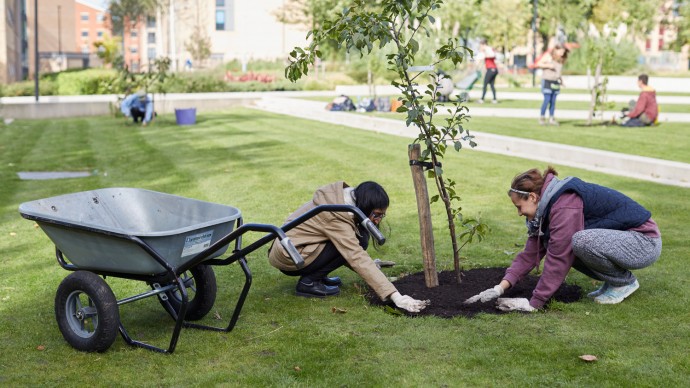
Birley orchard & woodland workshops
Working with our local partner Hulme Community Garden Centre, we deliver horticultural, fruit tree maintenance & urban foraging workshops in the orchard & woodland areas at our Birley site to help you develop skills for food production & conservation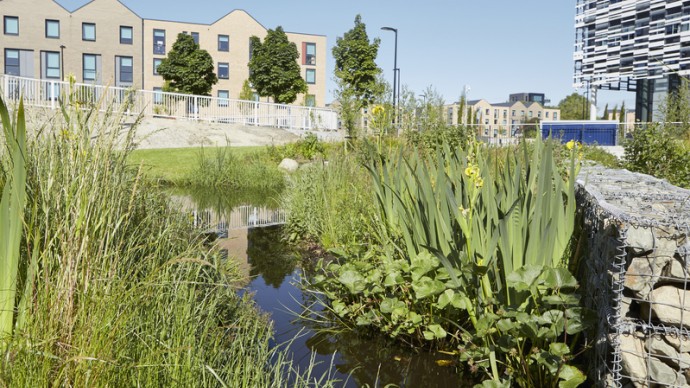
Wetland area at Birley
The wetland area at Birley Campus is biologically diverse with a mix of bog, reed and marginal planting to attract pollinators such as bees and butterflies, and helps to reduce the risk of flooding by providing storage for surface water run-off.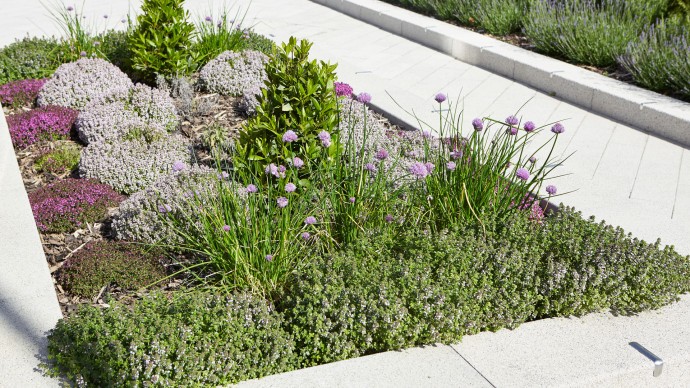
Edible herb garden and sensory space
The herb garden is a great area for learning and research, as well as proving a space to explore and relax. There is a wide array of edible herbs including chives, fennel, bay, oregano, rosemary and thyme.
Woodland areas
Working in partnership with Hulme Community Garden Centre, we have maintained and enhanced two natural woodland areas at our Birley site - developing weaving paths, installing an insect hotel and planting a mix of medicinal and edible plants. -
Environmental Management
Our Environmental Management System (EMS), ISO 14001:2015 offers a framework for managing and minimising our impact on the environment.
It provides the structure to implement our sustainability strategies and plans and it governs every aspect of our operations – from learning, teaching and research, through to leadership, governance and engagement activities.
We achieved the international standard for environmental management ISO 14001:2015 in 2016 – making us the first university to achieve this challenging certification and have continued to maintain our certification ever since.
-
Ethical investment - responsibility in financial decision-making
Our Ethical Investment Policy (part of the University’s Treasury Management Policy) sets out our investment approach - primarily that we will not intentionally invest in fossil fuel companies, arms companies, or corporations complicit in the violation of international law.
Our Finance and Ethical Investment page collates information in one place about our investment practices and procedures - providing information about our policies, annual investments, governance, committee members that oversee investments and updates on our investment policy reviews.
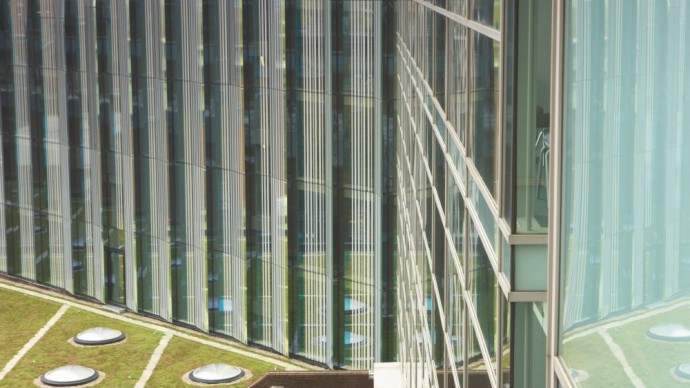
Annual report and financial statements
The Annual Report and Financial Statement provides an overview of progress towards our existing five-year strategic plan including education, research, internationalisation, institutional sustainability, and an overview of our financial statements. -
Food and drink - sustainable catering on campus
Catering offers the chance to address a range of sustainability issues. While we aim to provide food that’s healthy, affordable, local, seasonal and nutritious – with plant-based alternatives where possible – we’re also looking to eradicate single-use packaging, cut food waste and reduce both our energy and water consumption.
Find out more about sustainable food and drink on campus by visiting our dedicated webpages.
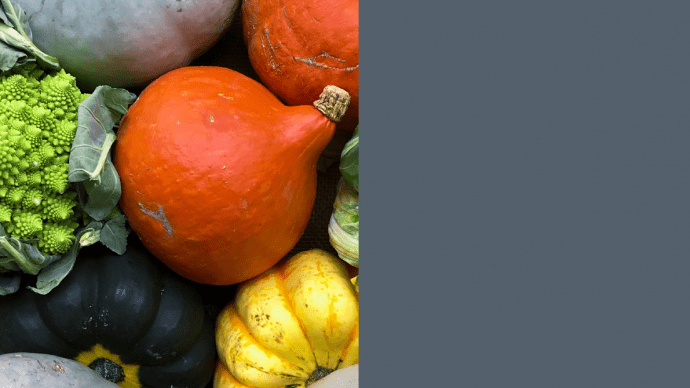
Sustainable Food
We have a developed a new Sustainable Food Policy that outlines how we will source and provide food that is better for the environment, good for society and animal welfare.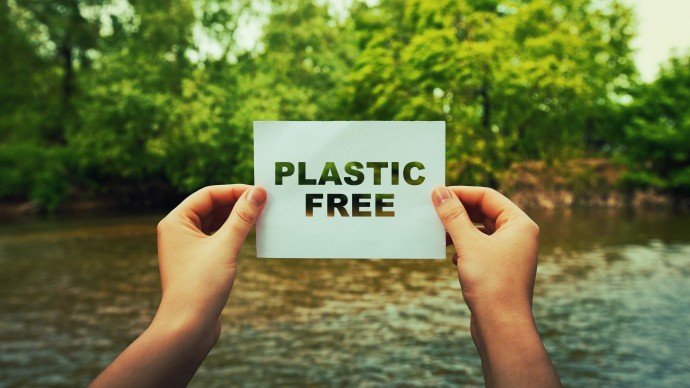
Eradicating avoidable plastics
We aspire to be a plastic-free University and are taking action to remove unnecessary plastics. We’re working to reduce the consumption of single use plastics, we sell reusable cups and bottles and provide free mains-fed water.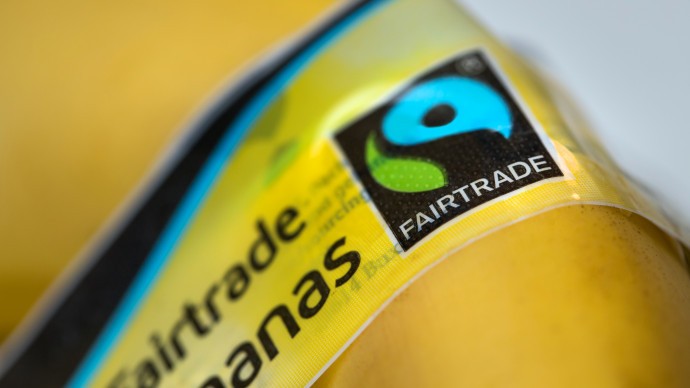
Two-star university
We're a two-star member of Food Made Good (2019), awarded by the Sustainable Restaurant Association, recognising our commitment to sustainability across across sourcing, society and environment throughout our catering and hospitality services. -
Reuse and recycling - managing our wastes
In 2021/22 we reused and recycled 53% of our wastes (excluding capital wastes) and diverted over 97% of all of our waste (including capital waste) from landfill.
We undertake many activities and initiatives that help increase our recycling rates, but also that reduce the amount of waste that we produce in the first place.
- We deliver a sector-leading and award-winning donation and recycling campaign at the end of each term in our student accommodation, called ‘Give it don’t bin it’, raising an estimated £2.4m for the British Heart Foundation and donating thousands of meals to local food banks.
- We provide clear guidance to ensure rubbish goes into the appropriate waste or recycling bins, and our Operational control policy procedure for hazardous and non-hazardous waste provides a point of reference to ensure compliance with our legal obligations and to achieve our reuse and recycling targets.
-
Sustainable Procurement and decent and fair work
We spend approximately £106million with around 3,000 suppliers every year. With every purchasing decision comes the chance to make a positive impact for the University, the economy, our society and our environment. As such, we ensure that we consider the full breadth of social justice, ethical trade, labour rights and sustainability issues throughout our decision-making process.
Along side achieving level 4 of the government’s Flexible Framework for measuring sustainable public sector procurement, we are undertaking a range of activities that improve the sustainability of procurement, supply chain practices and working conditions for all.
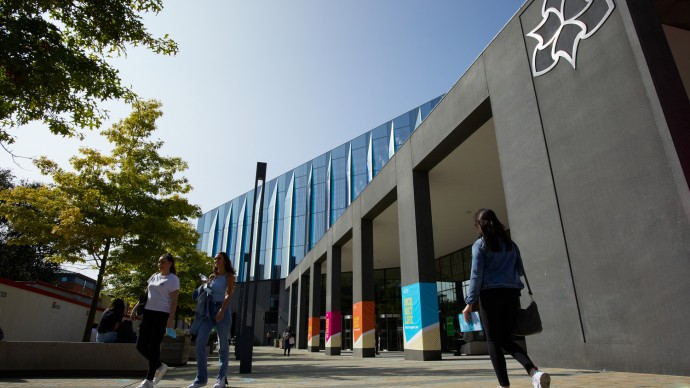
Procurement Strategy
Our Procurement Strategy is aligned to fully support the objectives contained in the wider University strategies as well as contributing to the University's five strategic themes.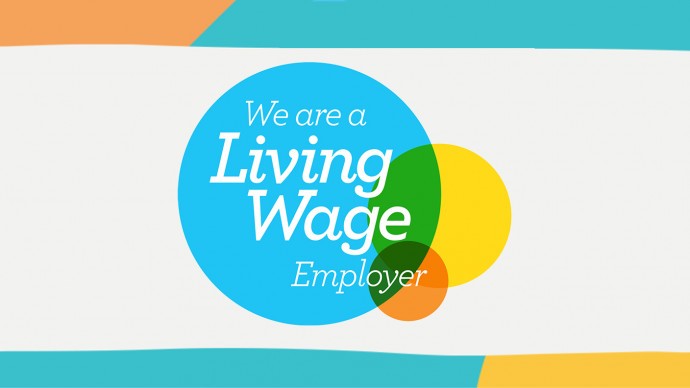
Living wage employer
We are proud to be an accredited Living Wage Employer. We join nearly 6,000 organisations as an accredited employer demonstrating our continued commitment to decent work and in alignment with the United Nations Sustainable Development Goals.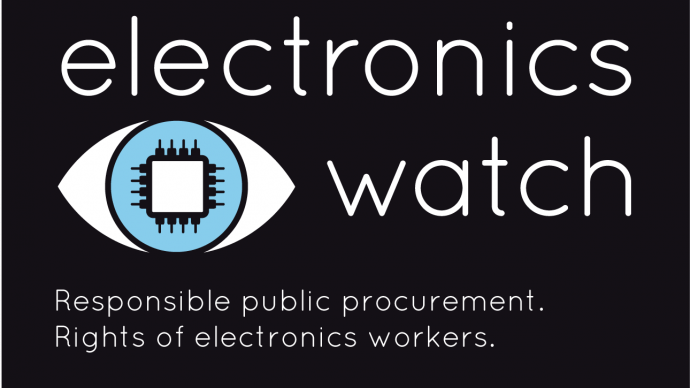
Electronics watch
We are affiliated through the through the North West Purchasing Consortium to the Electronics Watch, which helps public sector organisations to protect the rights of workers in electronics supply chains.
Modern Slavery
We are committed to ensuring our business activities and supply chains are slave-free. We outline our approach to the removal of modern slavery our Modern Slavery Act Policy and Modern Slavery and Human Trafficking Annual Statement. -
Travel - supporting active and sustainable travel
Our city-centre campus couldn’t be better connected, offering easy access to public transport and great options for pedestrians and cyclists. Over 42,000 students and staff travel frequently to our campus, so it’s essential that we do all we can to make sustainable and active travel choices available, not only to achieve our own sustainability goals, but also to support Greater Manchester’s 2040 Transport Strategy Vision:
- Our Sustainable Travel Plan sets out how we will minimise the impact of our journeys by encouraging the use of low-carbon and active modes of travel.
- We encourage our staff to cycle through our cycle-to-work scheme. We also invest in cycle facilities for staff and students on campus, as well as working with Transport for Greater Manchester to provide cycle skills and maintenance workshops.
- We provide charging points for electric vehicles, and in 2022 launched an electric vehicle benefit scheme for university employees.
- We encourage our employees to use public transport by offering interest-free loans for season tickets, and by working with regional transport providers to to provide corporate discounts.
- Making lower-carbon choices for business travel and travelling only when necessary for business purposes are a key part in reducing our carbon emissions associated with business travel. We provide all staff with a business travel decision tree tool to help select modes of travel with the lowest possible carbon emissions.
-
Green Careers and Recruitment
GREEN SKILLS ARE IN DEMAND
It is widely acknowledged that there is a growing demand across all jobs for candidates with green skills.
Regardless of sector or degree discipline, it’s recognised that every job in the future will be a green job as our drive towards a sustainable future and net zero carbon becomes a focus point for everything we do. Embedding sustainability into business can only be delivered through the skills of employees, which are critical in delivering sustainability.
With our 2022-26 Leadership in Sustainability Strategy, our ambition is to embed relevant sustainability learning into every course we deliver. One way to do this is through the opportunities offered to our students through our careers and employment activities, and through employer work experience placements.
Anybody from any course, discipline, sector, or background can understand the role they play in greening the economy.

